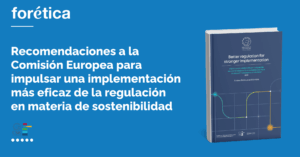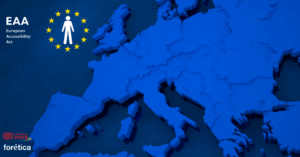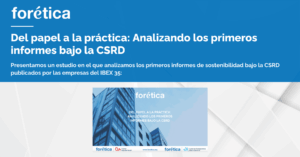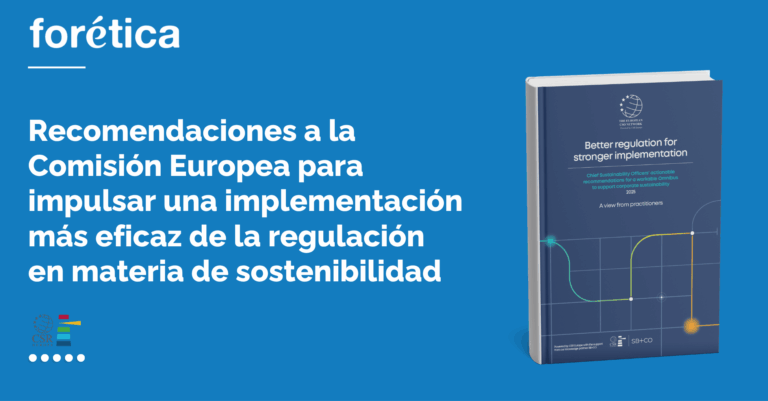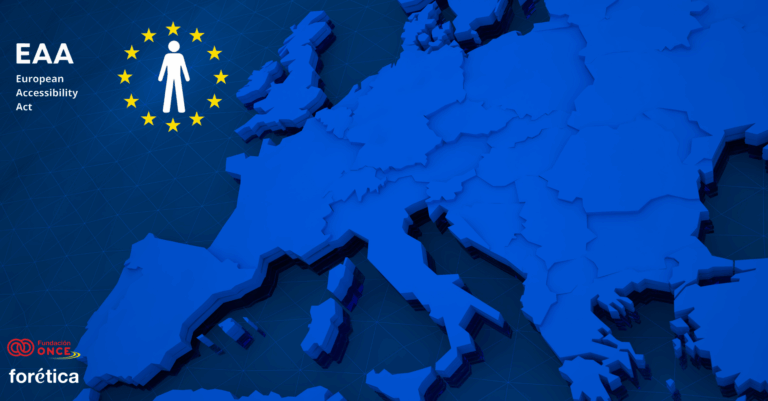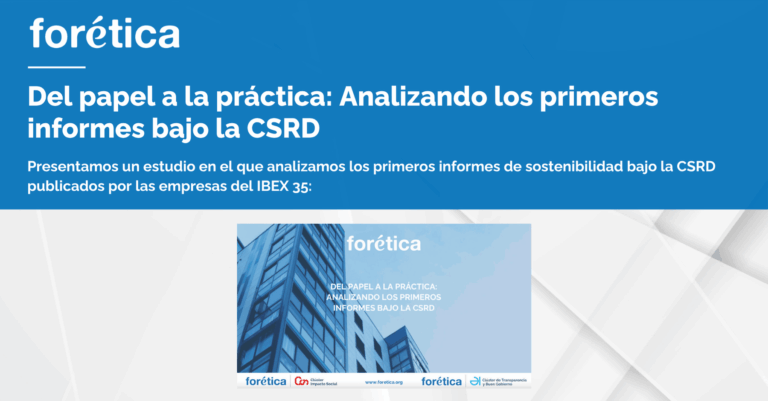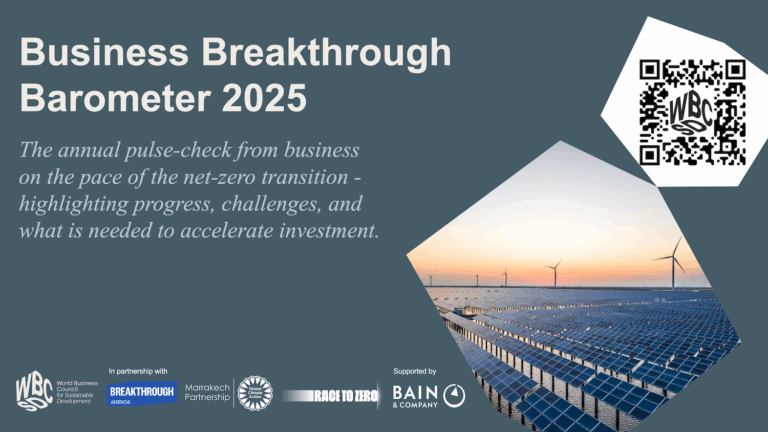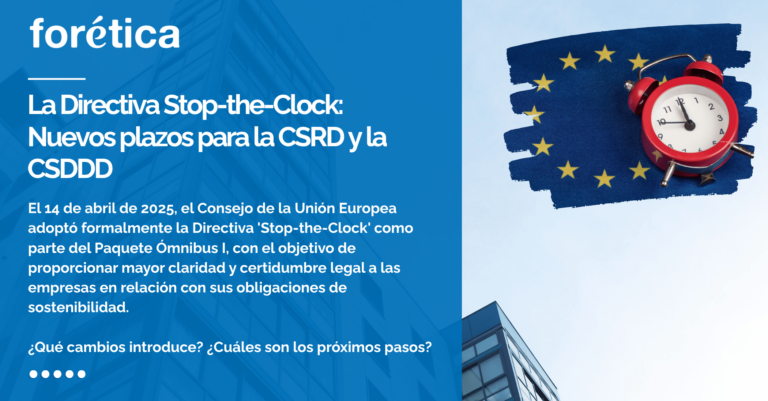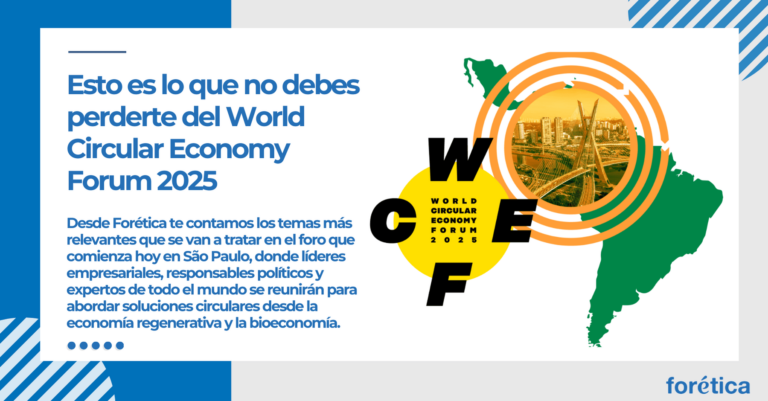Desde Forética estamos convencidos de que es muy importante avanzar en el conocimiento y fortalecimiento del papel que juegan las empresas a la hora de generar y desarrollar espacios de igualdad. Espacios donde el talento femenino no se vea penalizado, sino valorado, y donde mujeres y hombres convivan aportando todo su valor a la hora de contribuir a modelos de empresa y sociedad más igualitarias y sostenibles.
Por ello, el pasado 5 de marzo tuvimos la ocasión de presentar el documento “El rol empresarial en la brecha de género: claves para la contribución de las empresas a la igualdad ”. Este documento pretende arrojar luz sobre el papel tan decisivo que pueden jugar las empresas a la hora de abordar la brecha de género y, por tanto, contribuir a la promoción de entornos más igualitarios, más diversos y más sostenibles, desde un punto de vista de competitividad empresarial.
El informe repasa algunos de los principales elementos que contribuyen a la brecha de género en España, claros indicios de elementos que son necesarios abordar desde el punto de vista empresarial. Destacan los siguientes:
- Penalización de la maternidad. Datos como que el 70,6% de las trabajadoras en España considera que la maternidad pueda afectar a su carrera profesional o como que el 90,6% de las excedencias por cuidados de familiares son solicitadas por mujeres hacen necesario desarrollar estrategias de conciliación y corresponsabilidad efectivas.
- Segregación vocacional y horizontal. Indicadores que demuestran cómo desde la infancia las mujeres tienden a concentrarse en sectores y ocupaciones con mayores tasas de empleo temporal o parcial, de menores salarios y peores condiciones laborales. El 90% del empleo femenino se concentra en el sector servicios (comercio, hostelería, limpieza…)
- Techo de cristal y brecha salarial. La dificultad de acceso de las mujeres a puestos de responsabilidad es uno de los síntomas más claros de la necesidad de un protagonismo más activo por la parte empresarial (por ejemplo, únicamente el 23.78% de los miembros de Consejos de Administración de empresas del IBEX 35 son mujeres). A nivel salarial, la brecha se sitúa en un 14.2%, un desequilibrio importante, si bien algo por debajo de la media europea (16,2%).
También repasa algunos de los principales debates y sus implicaciones para la empresa. Incluye aspectos como el binomio flexibilidad del lugar de trabajo (teletrabajo) vs. derecho a la desconexión digital, los avances hacia un marco europeo de fomento de la conciliación de la vida personal, familiar y laboral o la contribución de la transparencia a la lucha contra la brecha de género.
Por último, en el informe se ha querido destacar el rol de las empresas, hablando de los impulsores, barreras y beneficios de la acción empresarial en la igualdad de género, y su vinculación con la creación de empleo, mejora en la competitividad y fortalecimiento de la sostenibilidad en las organizaciones.
Esta es la primera aportación del año 2019 del Clúster de Impacto Social, que va a continuar su intenso trabajo durante todo el año. Este clúster es el punto de encuentro empresarial en liderazgo, conocimiento intercambio y diálogo en materia de impactos sociales (internos y externos) coordinado por Forética. Compuesto por 66 grandes empresas socias de Forética, está liderado por Grupo Cooperativo Cajamar, Ibercaja e ILUNION.
A lo largo de este año tenemos en agenda abordar de manera específica alguno de los temas identificados en el informe, como por ejemplo la brecha salarial (su cálculo, gestión y comunicación) o el desarrollo y promoción del talento femenino, que serán objeto de trabajo de las siguientes sesiones.
Estamos convencidos de que, entre todos, podremos ir mejorando estos aspectos, contribuyendo así al desarrollo de organizaciones mejores y más preparadas para competir desde modelos de responsabilidad social que tengan en cuenta a todos, y así conseguir avanzar hacia una sociedad más justa y equilibrada.
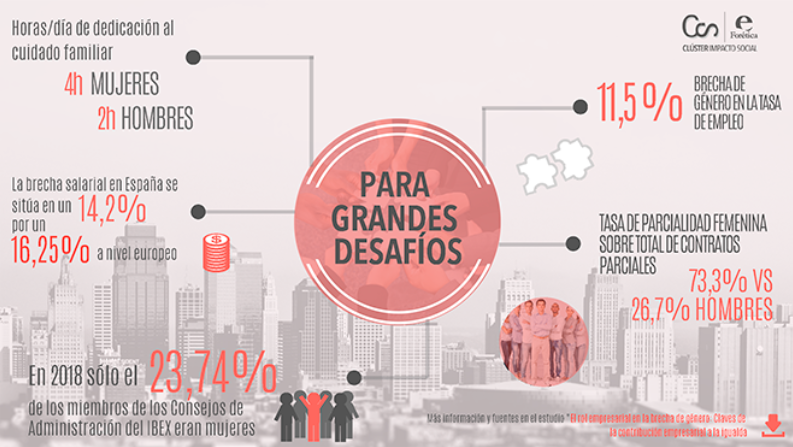
Este texto fue publicado inicialmente el pasado 10 de marzo de 2019 en diarioresponsable.com Puedes leerlo aquí




